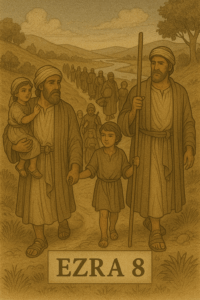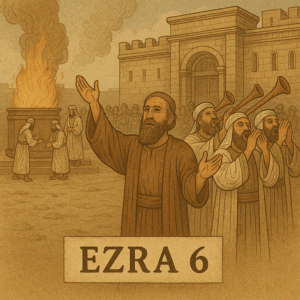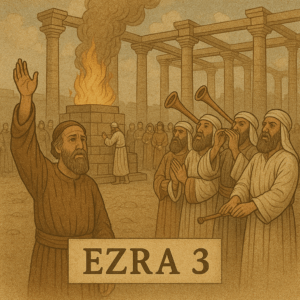Introduction.
Numbers 6 presents the Nazirite vow, a voluntary act of devotion to God involving strict prohibitions and rituals. This commitment, available to both men and women, required abstaining from wine, refraining from cutting one’s hair, and avoiding contact with the dead. Far from being an outdated or obscure practice, the Nazirite vow holds lessons on dedication, purity, and the search for spiritual clarity. This post delves into the details and significance of the vow and its implications for contemporary believers.
Understanding the Nazirite vow.
The Nazirite vow, outlined in Numbers 6:1-21, is unique in its voluntary nature and the deep level of commitment it demands. Participants chose this path as a form of special consecration to God for a set period, reflecting an intense desire for spiritual purity and closeness to the divine. The restrictions placed on the Nazirite were symbols of purity and separation from worldly pleasures and distractions:
i. Abstinence from wine and fermented drink: Symbolizing the avoidance of worldly excesses and maintaining spiritual clarity.
ii. No cutting of the hair: A public, visible sign of the vow and a symbol of strength and dedication.
iii. Avoidance of contact with the dead: Even in the case of family death, to maintain ritual purity and focus on life and spiritual growth.
Spiritual Significance and Modern Implications
The Nazirite vow is rich in spiritual symbolism, emphasizing the importance of sacrifice, purity, and a life set apart for God. It teaches valuable lessons about the power of personal vows in enhancing one’s spiritual journey:
i. Sacrifice and self-denial: The vow’s restrictions serve as a reminder of the importance of sacrifice and self-denial in spiritual growth. They challenge believers to consider what they might need to abstain from in order to draw closer to God.
ii. Consecration and dedication: The vow represents a total consecration to God, highlighting the beauty and power of living a life dedicated to divine purposes.
iii. Physical symbols of spiritual commitment: Just as the uncut hair of the Nazirite served as a visible sign of their vow, believers today are encouraged to find tangible ways to express their spiritual commitments.
Conclusion.
The Nazirite vow described in Numbers 6 offers rich insights into the nature of spiritual commitment, purity, and dedication. While the specific practices of the Nazirite are not directly applicable to most believers today, the principles underlying the vow are timeless. They invite us to reflect on our own spiritual disciplines, the sacrifices we are called to make, and the ways in which we can live a life more fully consecrated to God.
Reflection.
As we ponder the lessons of the Nazirite vow, let us consider the areas in our lives where we might be called to greater dedication and purity. May the ancient practice inspire contemporary believers to embrace deeper commitments to their faith, reflecting on the sacrifices and symbols that mark a life devoted to spiritual growth and service.




